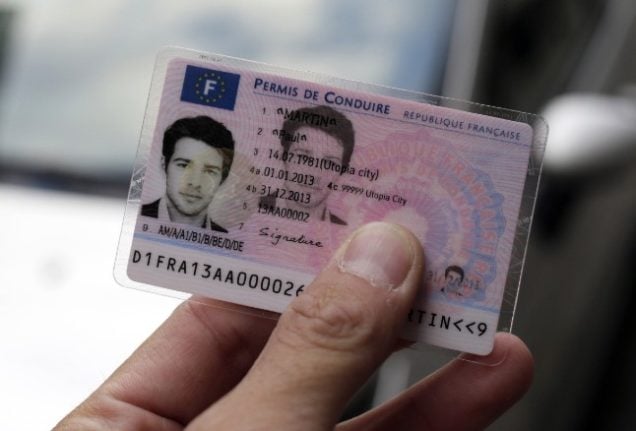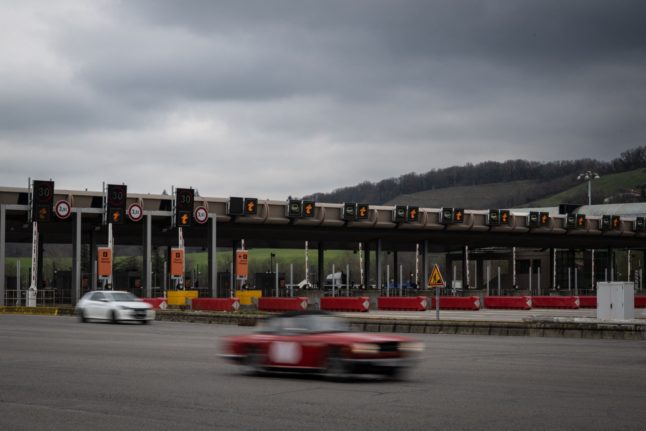The issue of whether British driving licences will be accepted after Brexit has been a long and complicated saga, with contrary advice being issued at different times.
In the aftermath of the 2016 Brexit referendum, the British government told all British people living in France that they would need to exchange their driving licence for a French one.
Thousands of people did so, completely overwhelming officials in the small department at Nantes préfecture which processes all requests for foreign licence exchanges. It resulted in a massive backlog of applications.
In 2019, French authorities issued a new directive – only people who fell into certain categories (such as those whose licence was lost or about to expire) needed to exchange their licence, everyone else could carry on driving on their UK one.
They then began work on clearing the backlog and also created a new online process to make applications easier.
However now, all British nationals have been told that from January 1st 2021 they will need to exchange their licence after all.
They will be given until December 31st 2021 to make the application.
This applies only to British people living in France, not tourists.
Kim Cranstoun, who runs the Facebook group Applying for a French Driving Licence, which offers detailed advice and guidance on the process, said everyone should not rush at once to apply.
She said: “CERT (who process the applications) want people to exercise caution and not to apply all at the same time, you have 12 months to apply for your exchange.
“If everyone applies again at the same time we could end up with the same position we were in early 2018 where we broke the system.”
The huge backlog of applications in 2018 left many people waiting for months or even years for their licence, and some people's licence expired while they waited, leaving them unable to drive.
Kim added: “A UK or Northern Ireland driving licence will not be made invalid from January 1st, 2021.
“However, it will now be compulsory to exchange your licence from January 1st 2021 – but you have until December 31st 2021 to make your application.
“The exchange of a UK or NI licence is still currently the same criteria until the end of the year.”
The process to make the swap has now moved online, which people who have used it say is a considerably simpler and more streamlined process.
Applications can now only be made online, there is no option for a postal application but some préfectures are offering help with the application for people who have limited internet access.
READ ALSO – 'It's so much easier': The process for swapping driving licences moves online
However The Local understands that the CERT office has not been given any extra staff to process all the applications from British people, so there are fears of more long backlogs.
This may also affect non-British people who need to swap their licence for a French one, since the same office processes all applications.
Between now and January 1st the ONLY people who need to swap their licence are full time residents who fulfil one of the following criteria;
- The licence has been lost or stolen
- You have added a new driving category to your licence
- You are specifically instructed to exchange it by a gendarme or police officer (this usually happens if you have committed a driving offence)
- Your licence or photocard is due to expire within six months – anyone turning 70 must exchange their licence and the photocard licences need renewing every 10 years for most categories.
After January 1st all full-time residents will need to swap their licence, but need to fulfil these criteria
- Possession of a current full UK or NI driving licence – you cannot exchange a provisional licence
- Evidence of residence in France for more than 185 days.
Unlike the residency process which accepts a variety of documents as proof of length of residency, the driving licence exchange requirement are quite specific.
If you don't have the correct documents you application is likely to be rejected, so it is better to wait and acquire the documents you need before applying.
The proof of residency for 185 days or more can be either;
- Your Impots sur Revenue (annual tax declaration)
- Attestation de droits from Ameli (the French healthcare system)
You will also be asked to supply scanned copies of
- Proof of address – eg Electric, Water or Phone bill less than six months old
- ID – passport or Identity Card
- Current licence
- Photo – this needs to comply with French standards
- Timbres – if you have to pay (lost or stolen licence)
- Medical certificate (for certain categories only)
British people who have a licence from another EU country will not need to exchange theirs, likewise non-British people who have a UK licence will need to exchange it.
For full details on the process and requirements for different categories, head to the Facebook group Applying for a French Driving Licence and read the documents section which gives a detail guide and translation for the whole process.



 Please whitelist us to continue reading.
Please whitelist us to continue reading.
Although I have no plans to go back to the UK, does anyone have any idea what happens to our licenses if we do? Will there be another exchange to take place, or would one have to take that dreaded test again? Yikes!
Thank you Emma for very helpful article. Following your directions, being one of those requiring to apply now, I duly plucked up courage and completed the application quite easily and quickly on line. It was even acknowledged promptly. Merci encore